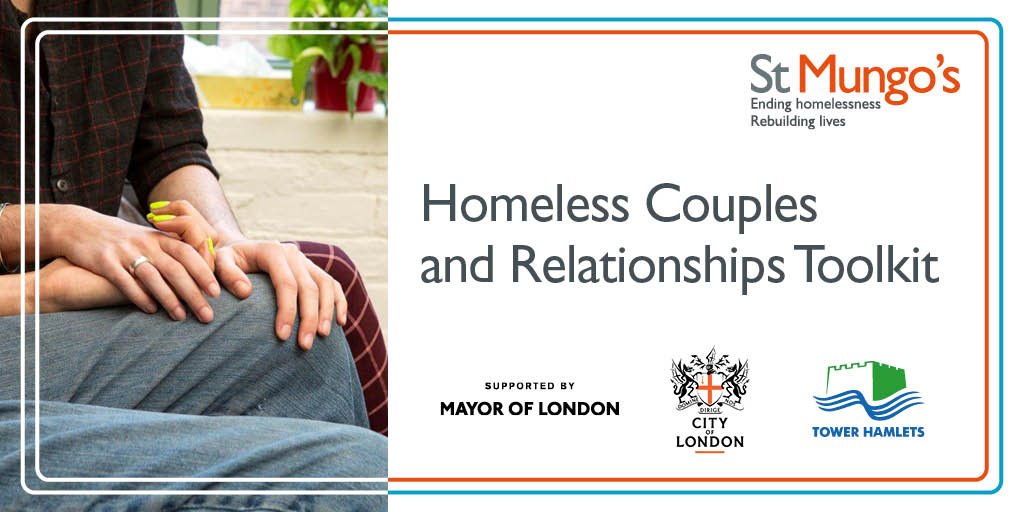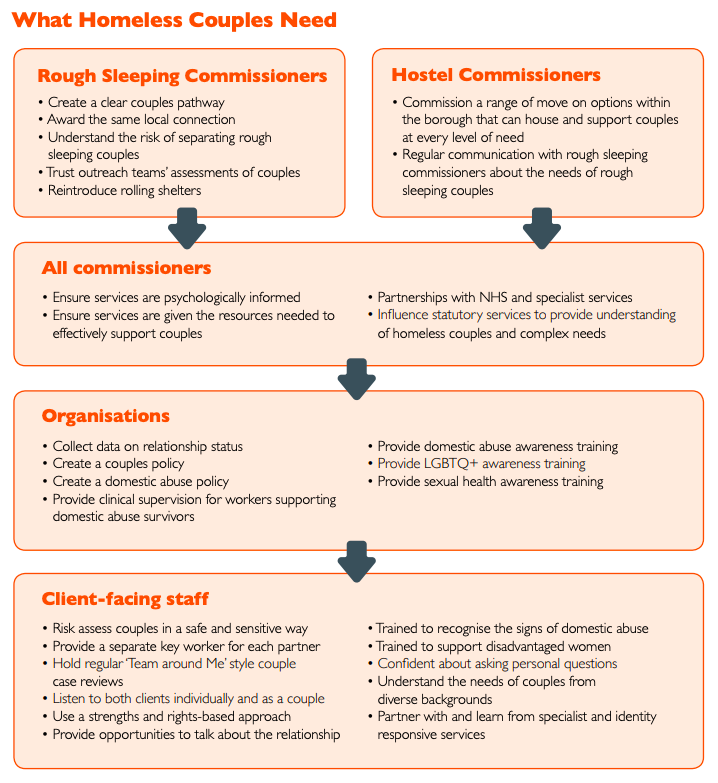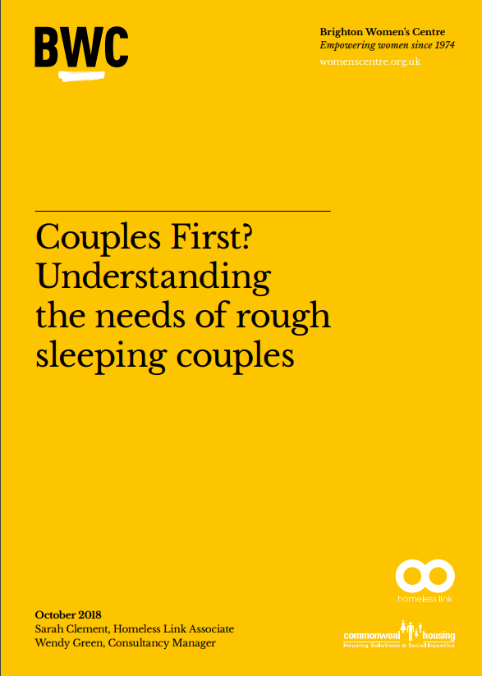
St Mungo’s Homeless Couples and Relationships Toolkit is a vital resource for every organisation working with homeless women
At Commonweal, a key measure of success for projects we are involved in is the extent to which other organisations can build on our learning, and apply it to their work in social justice and housing.
This week, we were pleased to see St Mungo’s publish their new toolkit on working with homeless couples: a vital resource that builds on the findings of Brighton Women’s Centre’s 2018 Couples First? research.
We were proud to fund BWC’s study into a critically under-explored area of homelessness research: the experiences of homeless couples, and women who enter into relationships for safety while homeless.
Couples First? found that homeless women often enter into potentially dangerous relationships to protect themselves from the unique risks and dangers they face on the streets. For many rough sleeping women presenting as being in a relationship, there was often a lack of understanding, and acceptance, of their relationships in mainstream homelessness support services.
Equally, refuges, and other women-specific services, were often unable to support a woman and her partner as a couple for a variety of reasons: safeguarding of other service users; fears over potential abuse within the relationship; or simply not having the resources to work with a couple.
In some cases, women were encouraged – or perhaps required – to end the relationship before homelessness services could work with them. Too often this meant women accessing no support services at all, because they chose not to end the relationship with their partner, or were coerced into not doing so.
The report recommended a ‘couples first’ approach for homelessness support services, including unconditional acceptance of clients’ relationships and any request to be supported together.
St Mungo’s new toolkit has built on the findings of this research, to produce a set of practical guidelines and recommendations for housing and homelessness services and commissioners in the UK.

Building on the ‘couple’s first’ approach advocated by BWC’s research, St Mungo’s toolkit emphasises the importance of inclusive approaches to working with homeless couples. It provides guidance to homelessness services on how to support couples experiencing multiple, overlapping disadvantages.
It highlights that homeless women who are even more marginalised because of their sexuality, ethnic background or ability are more likely to have more complex support needs, and will often use relationships to meet these needs.
Homelessness is a gendered issue, and one which affects the most marginalised women in society to greater extremes. It’s great to see this awareness reflected throughout this new guidance from St Mungo’s.
In our partnership work over the last fourteen years, we have seen the difference that empathetic, tailored support can bring to the most vulnerable people in need of housing support, recognising that access to secure housing is central to this principle.
With the right support from the start – non-judgemental, inclusive and tailored to individual needs and aspirations – homelessness organisations can ensure they are preparing both their single and partnered clients equally for safe, independent living.
This toolkit is a brilliant resource for homelessness service providers working with homeless couples, to accept relationships at face value and work with all parties from that starting point.
This is not just about already overstretched service providers adapting their working practices, however. There must be greater recognition of rough sleeping couples from commissioners of homelessness services to ensure there is an understanding of the particular needs of couples, and funding available for services to work with them.
Joined-up working between providers and commissioners will be vital to providing reliable, thorough and couples-first support to all partnered homeless women in future.
We look forward to this toolkit having a positive impact on homeless couple’s experiences when seeking support from housing and homelessness services.
Tagged:

